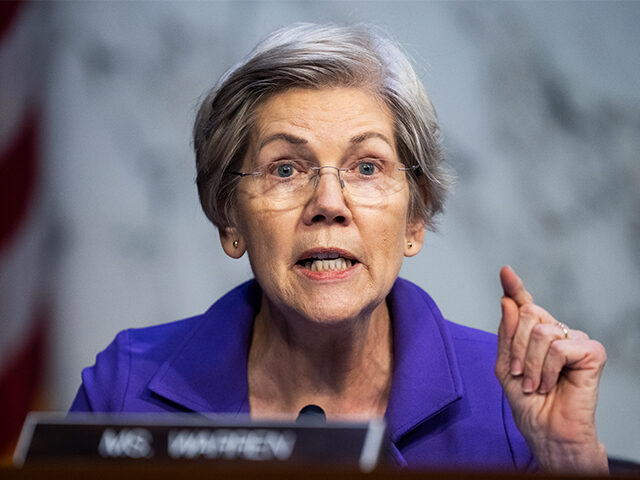Elizabeth Warren on Friday called on the Federal Reserve to cut interest rates, underscoring the increasing pressure from Democrat politicians on the central bank ahead of this year’s presidential election.
“The Fed hiked interest rates to the highest level in 20 years. Now, rents and mortgages are going up and housing is out of reach for many families,” Warren (D-MA) said on X. “Enough is enough. It’s time for the Fed to cut interest rates.”
The Fed hiked interest rates to the highest level in 20 years. Now, rents and mortgages are going up and housing is out of reach for many families.
Enough is enough. It’s time for the Fed to cut interest rates. pic.twitter.com/5u233hmUe6
— Elizabeth Warren (@SenWarren) February 9, 2024
Warren’s claims about rents and mortgages are not supported by data. Mortgage rates have come down significantly in recent months, with the average 30-year fixed rate falling from nearly eight percent last October to 6.4 percent.
The pace of rent increases has slowed significantly since peaking a year ago, data from Zillow show.
Most economists would expect increases in interest rates to hold down the pace of rate increases rather than accelerate them.
Warren and other Democrats have been increasingly vocal in their criticism of the Fed’s interest rate policy. In an effort to tame the worst inflation in four decades, the Fed raised rates aggressively in 2022 and through the first half of last year, bringing its benchmark fed funds rate up from the emergency near-zero level adopted when the pandemic struck to a range of 5.25 percent to 5 percent.
The last increase from the Fed came in July of 2023. Fed officials have said they expect to start reducing the rate this year but recently signaled that they do not expect to cut at their next meeting in March. The market is currently pricing in a rate cut at the May meeting, followed by an additional four or five cuts at meetings through December.
Warren’s fault-finding with the Fed’s current position threatens to make it more difficult for the central bank to continue to deal with the worst inflation problem that has struck the U.S. since the 1970s.
The sort of bipartisan comity and respect for central bank independence that might be expected during an ongoing economic crisis is being pushed aside by criticism from the American left.

COMMENTS
Please let us know if you're having issues with commenting.